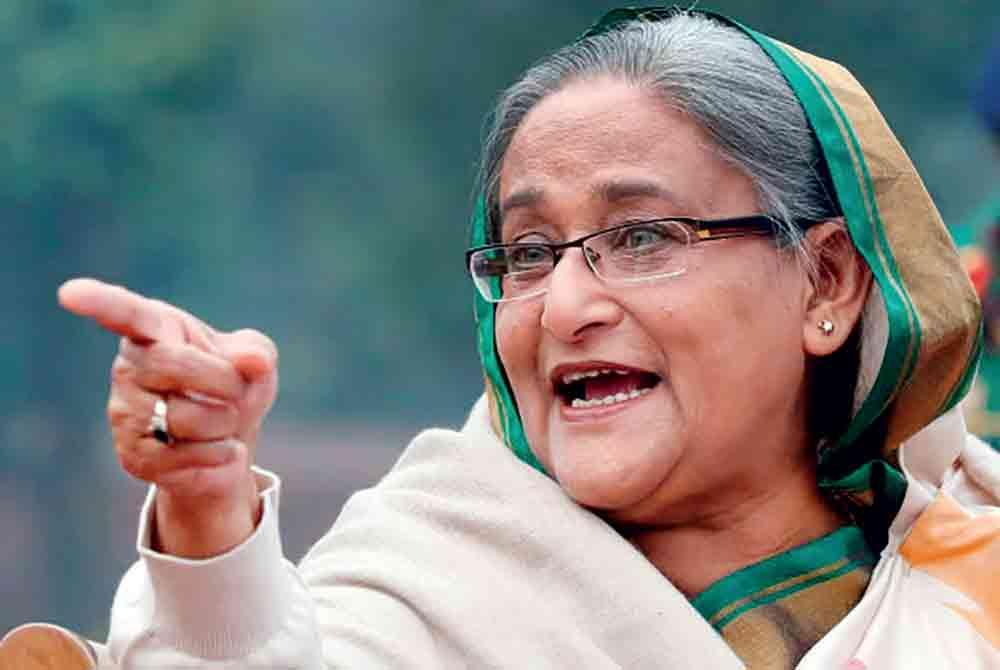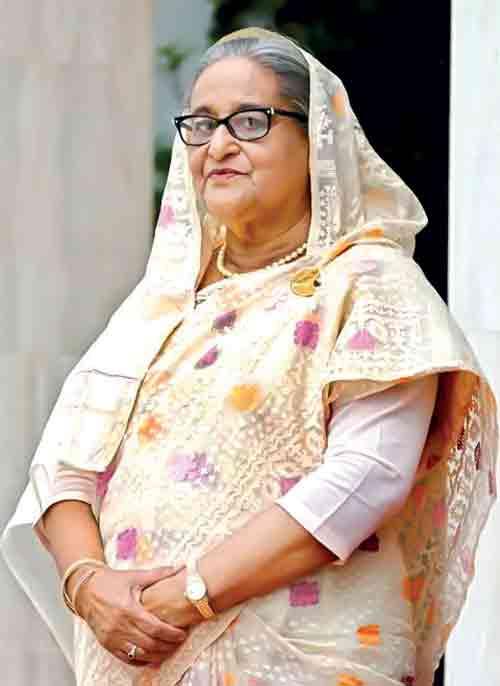
Sheikh Hasina has for decades been one of Bangladesh’s most pivotal political figures. Born in 1947 in Tungipara, she is the daughter of Sheikh Mujibur Rahman, the founding leader of Bangladesh. Her premiership spanned from 2009 until her ouster in 2024, a 15-year tenure during which she transformed Bangladesh economically but also presided over growing criticism of authoritarianism and democratic backsliding. But today marks not just a historic moment, it marks a dramatic nadir for Hasina. On 17 November 2025, the International Crimes Tribunal‑1 (ICT-1) in Dhaka sentenced her in absentia to death on charges of crimes against humanity, relating to a violent crackdown on student-led protests in July-August 2024. In this article, I examine the background to this verdict, the events that catalysed the uprising, her exile in India, the tribunal process and ruling, and the consequences for Bangladesh’s politics and the region.
THE 2024 UPRISING: HOW BANGLADESH REACHED THIS POINT
Triggering protest: quota system and student mobilisation
In July 2024, what began as student protests over a controversial civil-service job quota system turned into a much broader uprising. The policy, which reserved roughly 30 % of government service roles for families of veterans and freedom fighters, was widely seen by many young Bangladeshis as unfair and obstructive to merit-based opportunity. Within days the protests spread beyond campus grounds into major city streets, especially in Dhaka and other university centres. Students mobilised, calling for quota reform, job opportunity fairness, and greater political accountability.
Escalation: crackdown and mass casualties
What started as demonstrations escalated into mass unrest. The interim account suggests that during the unrest the state used lethal force, including drones, helicopters, and heavy weapons, according to the tribunal’s findings. The human toll remains contested: the UN Human Rights Office estimates up to 1,400 deaths during the crackdown. The protests, now dubbed the “July Revolution (2024)” ultimately led to the resignation of Hasina on 5 August 2024 and her flight into exile.
Political collapse and power vacuum
 With the mass uprising, Hasina’s long-standing rule came under immense pressure. She stepped down and fled the country, clearing the way for the formation of an interim government led by Nobel laureate Muhammad Yunus. This transition signalled a sudden shift in Bangladesh’s political landscape, one in which the former ruling party Awami League, long associated with Hasina, found itself banned from elections and its leader facing legal jeopardy.
With the mass uprising, Hasina’s long-standing rule came under immense pressure. She stepped down and fled the country, clearing the way for the formation of an interim government led by Nobel laureate Muhammad Yunus. This transition signalled a sudden shift in Bangladesh’s political landscape, one in which the former ruling party Awami League, long associated with Hasina, found itself banned from elections and its leader facing legal jeopardy.
Exile in India and extradition standoff
After stepping down, Hasina fled to India in August 2024, a dramatic exit involving multiple modes of transport and culminating in her arrival at an Indian Air Force base. Her stay in India has become a flashpoint. Bangladesh has formally requested her extradition, but India has so far declined to surrender her, citing various diplomatic and legal concerns.
From her exile, Hasina has made statements rejecting the legitimacy of the tribunal and contesting the charges as politically motivated. Thus, the case embodies not only domestic justice issues in Bangladesh but also regional diplomatic friction between Dhaka and New Delhi.
THE TRIBUNAL, VERDICT AND SENTENCING
Legal basis and charges
The ICT-1 charged Hasina with multiple counts of crimes against humanity: incitement, ordering killings, facilitating or failing to prevent mass murder. Evidence presented included drone logs, helicopter deployment reports, hospital records, and leaked audio recordings in which she allegedly authorised lethal force.
Verdict and sentence
On 17 November 2025, a three-judge bench found Hasina guilty on three of five counts and handed down the death sentence in absentia. Former Home Minister Asaduzzaman Khan was also sentenced to death; a former police chief received a lesser prison term for cooperating. The court’s ruling characterised Hasina as the “mastermind … highest order-giver” of the crackdown. In response, Hasina issued a statement calling the process “biased and politically motivated” and she rejected the tribunal’s legitimacy.
Reaction: domestic and international
Domestically, the verdict triggered outrage among Hasina’s supporters, who label the tribunal a “kangaroo court” and believe the verdict is designed to exclude the Awami League from upcoming elections. Internationally, the United Nations Human Rights Office welcomed accountability but voiced concern that the death penalty was imposed, emphasising that it opposes capital punishment under all circumstances.
WHY IT MATTERS: IMPLICATIONS FOR BANGLADESH AND BEYOND
Democratic transition and rule of law
The verdict represents a dramatic moment in Bangladesh’s democratic trajectory. On one hand, the idea of holding a long-time leader accountable signal a break from impunity. On the other, questions are emerging about whether the process meets international standards of fairness and whether justice is being used as a political tool. Analysts caution that “Bangladesh deserves stability, unity and responsible leadership” and stress the need for transparent due process.

Impacts on upcoming elections
With national elections expected in February 2026, the timing of the verdict has immediate political consequences. The Awami League, once dominant under Hasina, is banned, and its leader now condemned. This dramatically reshapes the electoral field and raises concerns about fairness, competition, and the possibility of new authoritarian dynamics under a different guise.
Regional diplomacy and India’s role
India’s role is central. By hosting Hasina in exile and refusing extradition, New Delhi has inserted itself into Bangladesh’s internal conflict. This poses longer-term questions for India-Bangladesh relations, border cooperation, and regional stability.
Human rights and international norms
The use of the death penalty, trial in absentia, and the speed of the proceedings have raised alarm bells for human-rights monitors. If the tribunal is seen as politically tainted, that could erode credibility and hinder future transitional-justice efforts in Bangladesh.
Social healing and national reconciliation
Finally, for Bangladesh’ civil society and victims of the 2024 uprising, the verdict is deeply symbolic. Families grieving lost loved ones see a measure of justice; yet, without broader truth-telling, reparations and institutional reform, the wounds may remain open, risking cycles of revenge or renewed instability.
A tentative summary and forward look
Sheikh Hasina’s journey from longest-serving female head of government in the world to death-sentenced political exile is remarkable and sobering. Her downfall was precipitated by a youthful, tech-savvy protest wave seeking fairness and accountability, a signal of generational change in Bangladesh. The tribunal’s verdict, while historic, opens as many questions as it resolves: about justice, democracy and what will replace the old order.
- Will Bangladesh hold credible elections in 2026, with real competition and freedom?
- Will Hasina’s exile persist, and what will happen should she return or be extradited?
- Can the new leadership build inclusive governance and avoid replicating the excesses of the past?
- What role will India and other neighbours play, especially given the geopolitics of South Asia?
For Bangladesh, the verdict is less an end than a major turning point. How the nation navigates this moment, between justice and vengeance, hope and chaos, will determine the shape of its next decade.










